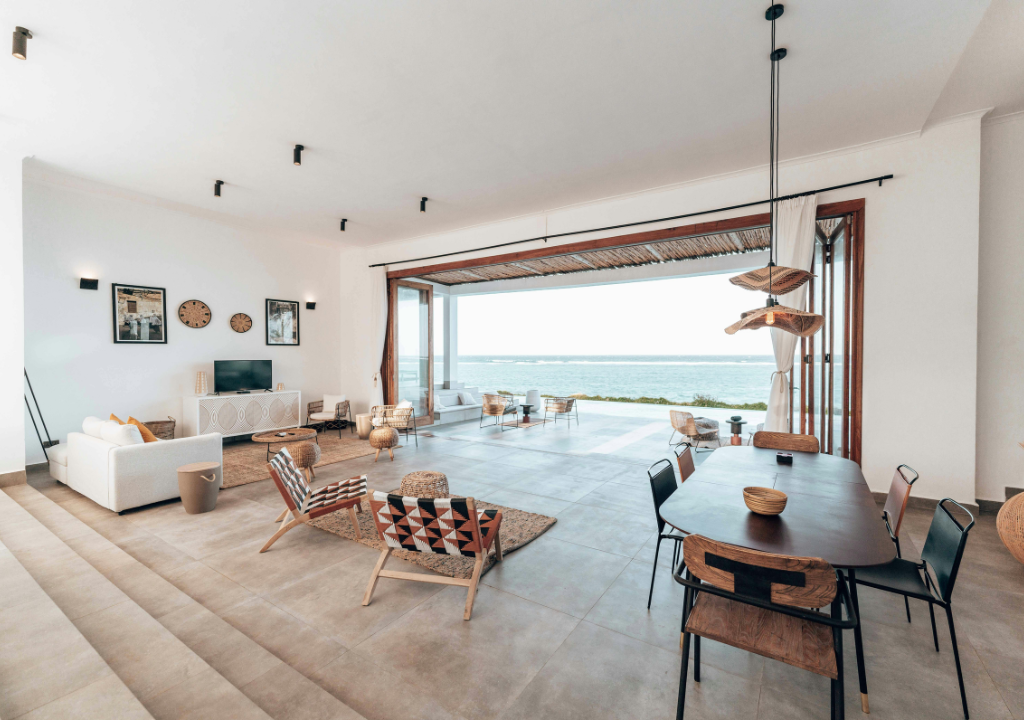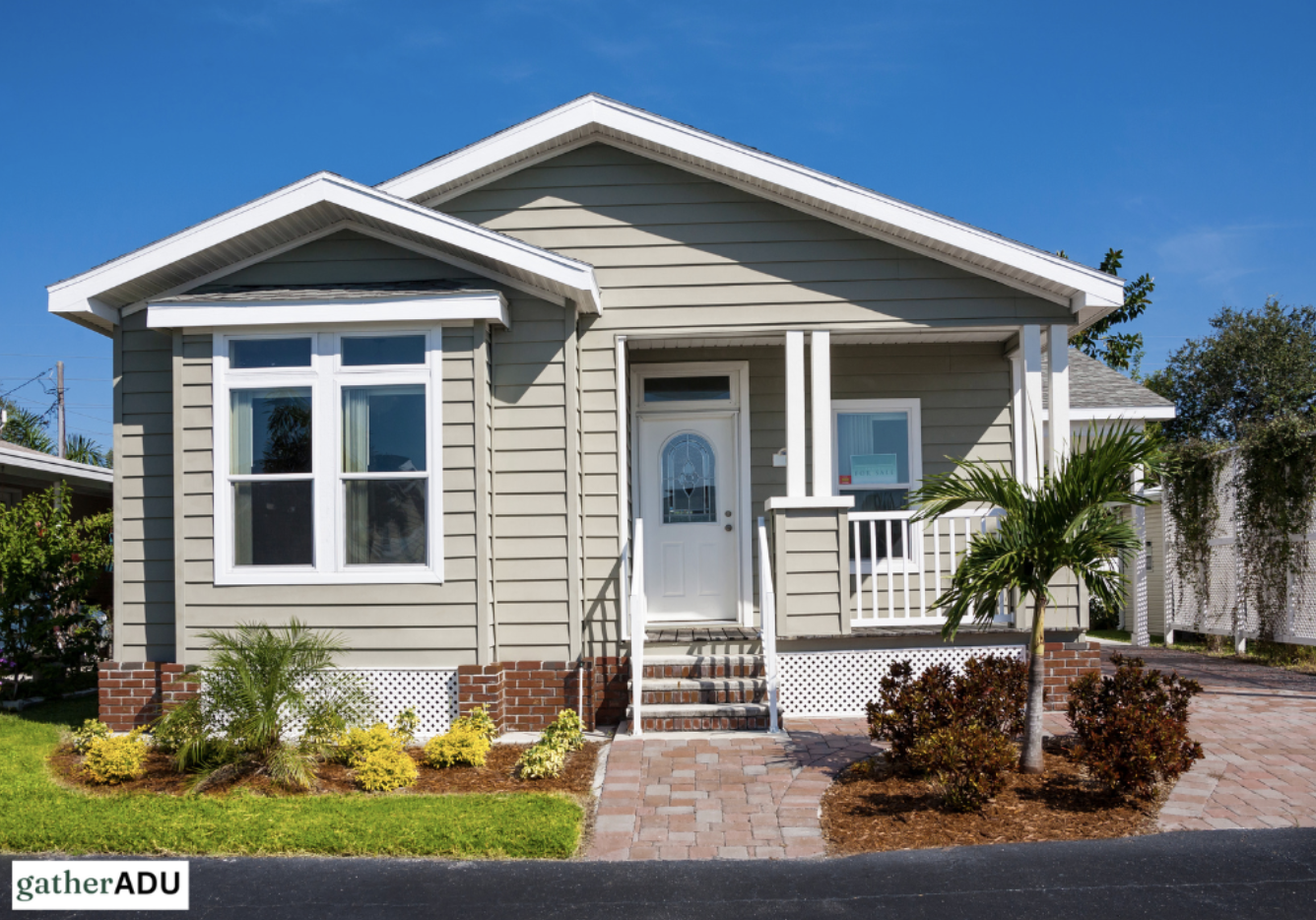The easiest way to get ADU permits in Marion depends entirely on the location. For instance, in Marion County, Florida, the simplest route is using their new online permitting system (Civic Access). This allows you to apply, submit plans, and schedule inspections. All of this happens in one streamlined online location.
Getting started requires understanding that Marion County issues permits for unincorporated areas. However, cities handle their own unique requirements. We at Gather ADU specialize in simplifying this process. We connect homeowners with local planners and builders. This helps secure a smooth process. It ensures the ADU fits both the property’s potential.
How Should You Prepare Your Property Before Starting an ADU Build in Marion?
Before building an ADU in Marion, first confirm your property's eligibility. Also, check local regulations. Do this through a feasibility consultation. Then, work with professionals to finalize the site plan. This secures permits. It also prepares the land for construction. This is achieved by running essential utility connections. This preparation involves:
- Research property history.
- Verify existing permit status.
- Accurately survey property lines.
- Identify utility locations and easements.
This preparation minimizes unexpected challenges during construction. It also minimizes challenges during permitting. Therefore, conduct a soil report if necessary. Also, consult with city experts. Check with them on water meter size, trees, and flood concerns. This groundwork ensures a stable foundation.

What is the Simplest ADU Permit Process in Marion County?
The simplest ADU permit process in Marion County, Indiana, uses the county's new online portal. Specifically, you submit the required documents through this system. These include site and floor plans. After checking that your plans meet all codes, you track the application online. The county reviews plans before any construction begins.
In most cases, the building permit application must be submitted. So must the site plan and architectural drawings. Consequently, the easiest route involves using pre-approved ADU plans. These plans are offered by certain Marion County cities, like Salem. These ready-built plans lower costs. They also immediately expedite the plan review phase.
What are the Key Zoning Requirements for Rural ADUs in Marion County?
Rural Accessory Dwelling Units (ADUs) in Marion County are only permitted in the Acreage Residential (AR) zone. However, the parcel must be greater than two acres in size and meet specific requirements. ADUs are generally not permitted in other rural zones. Specifically, they are prohibited in Exclusive Farm Use (EFU) or Farm-Forest (F-F) zones. Such as:
- Located only in the AR zone.
- Parcel must be over two acres.
- Maximum size is 900 square feet.
- Must be within 100 feet of the primary home.
These standards ensure the ADU is consistent with the existing AR zone. Therefore, homeowners must record a deed restriction. This is required before starting construction. This restriction acknowledges these specific standards. It especially covers those concerning size and location.

What Documents are Essential for a Marion County ADU Permit?
To apply for an ADU permit in Marion County, you will need a fully completed building permit application and a detailed site plan drawn to scale. The site plan must clearly show existing and proposed structures, utilities, and easements. Additionally, comprehensive architectural drawings with floor plans and elevations are required.
Furthermore, the application must include a wall section. This section shows the makeup of the load-bearing wall. It must detail from the footer to the roof. Ultimately, submitting a complete and accurate packet is the best way to prevent delays. This is because the city reviews plans for compliance. They check compliance with all safety and structural codes.
What Should Homeowners Know About Utilities and Fees in Marion?
Homeowners in Marion should know their utility bills include fees for water, sewer, and stormwater services. Additionally, they cover charges for garbage, recycling, and yard waste collection. Water rates often use an inclining structure, so higher usage means a higher rate. Finally, homeowners must be aware of fees for late payments or after-hours reconnections.
For rural ADUs in the Sensitive Groundwater Overlay (SGO) Zone, the ADU must connect to a water storage tank. This ensures compliance with essential infrastructure. It also ensures compliance with public works requirements. Therefore, consulting with the Public Works department early is vital. This consultation helps in calculating costs.

Unlock Your Coastal ADU Potential, Simple & Fast with Gather ADU
The complexity of ADU financing can be challenging. The permitting process can also be challenging for many homeowners. Without specialized guidance, the hurdles involved can lead to costly design errors. They can also cause significant construction delays. Furthermore, there are missed opportunities.
Let Gather ADU simplify your ADU project. We guide you from concept to completion. We provide expert project management. We also offer direct access to Oregon lenders. These lenders specialize in ADU financing. Our support ensures your design meets all Lostine zoning rules. It also ensures your permits are processed efficiently.
FAQS
What types of ADUs are allowed in rural Marion County?
Marion County permits interior, attached, and detached ADUs. This is allowed in the rural Acreage Residential (AR) zone. However, the parcels must be larger than two acres. Furthermore, manufactured homes can be used as ADUs.
Does Marion County require a land use application for an ADU?
No, a land use application is generally not required for ADUs in the Marion County rural AR zone. However, a building permit is mandatory for all construction. This permit must be obtained from the Building Inspection Division. Furthermore, homeowners must still adhere to all size and location standards.
What is the maximum size allowed for a rural ADU in Marion County?
The maximum size for a rural ADU in Marion County is 1,000 square feet, or 50% of the main house, whichever is smaller. Specifically, this limit is defined by agricultural zoning regulations. ADUs are permitted under certain conditions within these districts
Can I use a manufactured home as an ADU in Marion County?
Yes, manufactured homes can be used as ADUs in Marion County. However, the structure must meet all ADU standards. It must also be Energy Star certified. Furthermore, it must exhibit the US Housing and Urban Development (HUD) certification label.
Are ADUs in rural Marion County allowed to be used as short-term rentals?
No, if rented, an ADU in rural Marion County must be rented for a minimum duration of 45 days. This standard is in place to ensure that ADUs are not used as short-term rentals or vacation stays. The goal is to address the need for long-term housing.




